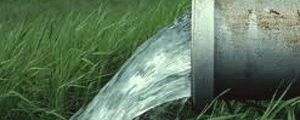
CHIREDZI — THE Zimbabwe National Water Authority (Zinwa) has advised Lowveld farmers to scale down on irrigation projects as water levels in Manjirenji Dam — the source of water in the area — are reported to have gone down to 12,6% as of Monday this week.
Report by Own Correspondent
Zinwa Masvingo Provincial engineer Albert Mare told NewsDay yesterday that Manjirenji Dam, which is the sole provider of irrigation water to the country’s giant Mkwasine and Hippo Valley sugar estates, was drying up at an alarming rate.
Mare said they had since introduced water rationing measures that would see farmers receiving irrigation water for two weeks per month until the start of the rainy season.
“We are expecting to have dead water by the end of the year if the rate of water usage is anything to go by, and if we don’t receive any meaningful rainfall by November,” said Mare.
The dam, which has a carrying capacity of over 277 million megalitres is normally considered to be in the red when its levels reach 60%. Mare attributed the drop in water levels to successive droughts that have affected the region over the past three years.
Besides supplying irrigation water to Hippo Valley, Mkwasine and Triangle sugar estates, the dam is also the major source of water for Chiredzi rural district and town councils.
Prince Ngarande, a new farmer at Mkwasine Estate, said his cane crop was failing because of water rationing by Zimwa.
- Chamisa under fire over US$120K donation
- Mavhunga puts DeMbare into Chibuku quarterfinals
- Pension funds bet on Cabora Bassa oilfields
- Councils defy govt fire tender directive
Keep Reading
“We cannot blame Zinwa for water rationing, otherwise they are doing it for the good of the farmer, but the situation at the farms is so bad. Crops are wilting and we are receiving irrigation water two weeks per month for five hours per day,” he said.











